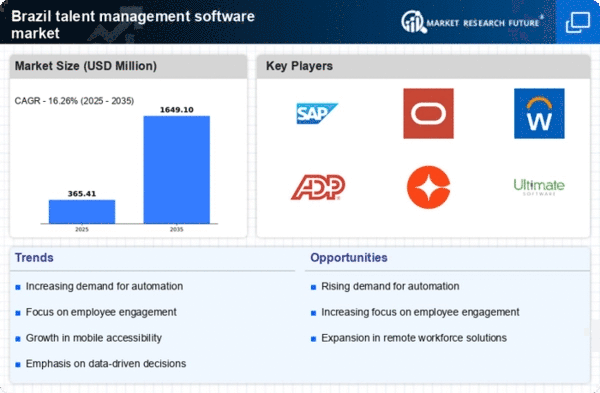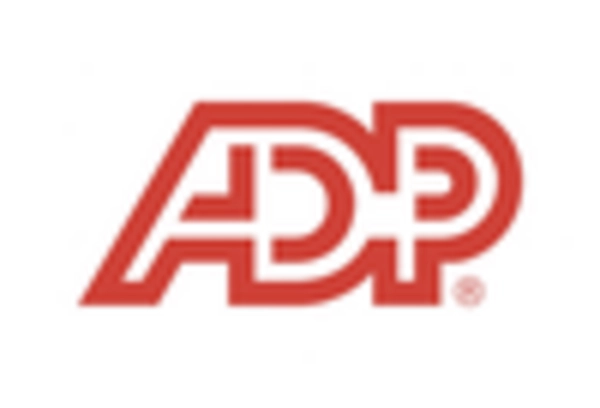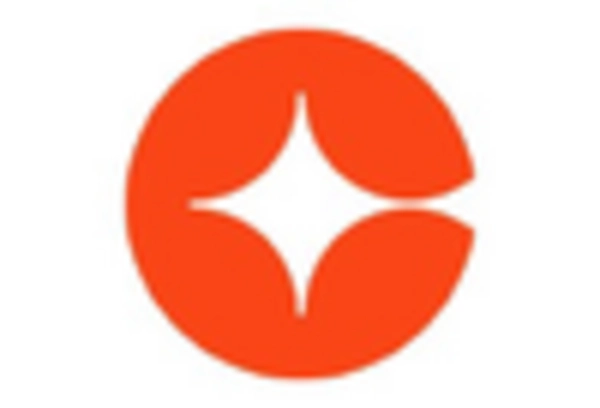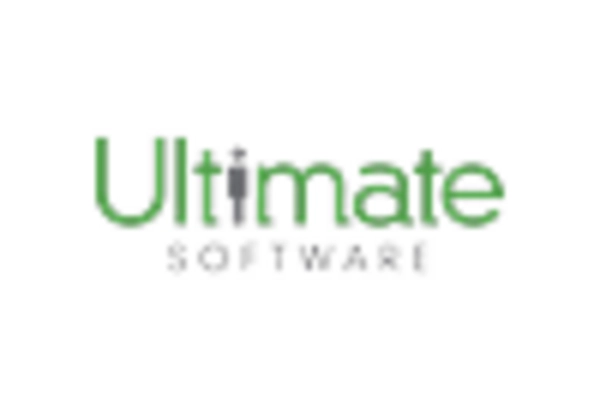Regulatory Compliance and Labor Laws
In Brazil, the evolving landscape of labor laws and regulations is significantly influencing the talent management-software market. Companies are increasingly required to comply with stringent labor regulations, which necessitates the implementation of robust talent management systems. The Brazilian government has introduced various measures aimed at protecting employee rights, and organizations must adapt their HR practices accordingly. This compliance requirement is driving the demand for software solutions that can automate and streamline HR processes, ensuring adherence to legal standards. As a result, the talent management software market is expected to see a rise in adoption rates, with an estimated 50% of firms prioritizing compliance features in their software selection.
Growing Demand for Workforce Optimization
The talent management-software market in Brazil is experiencing a notable surge in demand for workforce optimization solutions. Organizations are increasingly recognizing the need to enhance employee productivity and engagement, which is driving the adoption of sophisticated software tools. According to recent data, approximately 65% of Brazilian companies are investing in talent management solutions to streamline their HR processes. This trend is indicative of a broader shift towards data-driven decision-making in human resources, where analytics play a crucial role in identifying skill gaps and optimizing talent deployment. As businesses strive to remain competitive, the focus on workforce optimization is likely to propel the growth of the talent management-software market in Brazil.
Shift Towards Remote Work and Flexibility
the talent management software market is undergoing a transformation due to the increasing shift towards remote work and flexible employment arrangements in Brazil. Organizations are adapting to new work models that prioritize employee autonomy and work-life balance. This shift necessitates the use of advanced talent management solutions that can support remote collaboration, performance tracking, and employee engagement. Data suggests that around 70% of Brazilian companies are now offering flexible work options, which in turn drives the need for software that can effectively manage remote teams. Consequently, the talent management-software market is likely to expand as businesses seek tools that facilitate seamless communication and performance management in a remote work environment.
Emphasis on Employee Development and Retention
In Brazil, there is a growing emphasis on employee development and retention strategies, which is significantly impacting the talent management-software market. Organizations are increasingly investing in training and development programs to enhance employee skills and reduce turnover rates. Recent statistics indicate that companies focusing on employee development experience a 30% lower turnover rate compared to those that do not. This trend is prompting businesses to seek comprehensive talent management solutions that offer learning management systems and career development tools. As the competition for skilled talent intensifies, the talent management-software market is likely to benefit from this focus on employee growth and retention initiatives.
Technological Advancements and Integration Capabilities
Technological advancements are playing a pivotal role in shaping the talent management-software market in Brazil. The integration of various HR technologies, such as applicant tracking systems and performance management tools, is becoming increasingly important for organizations seeking to streamline their HR functions. Companies are looking for software solutions that can seamlessly integrate with existing systems, thereby enhancing operational efficiency. Data indicates that approximately 60% of Brazilian firms prioritize integration capabilities when selecting talent management software. This trend suggests that the market will continue to evolve, with a focus on providing comprehensive solutions that cater to the diverse needs of organizations in Brazil.
















